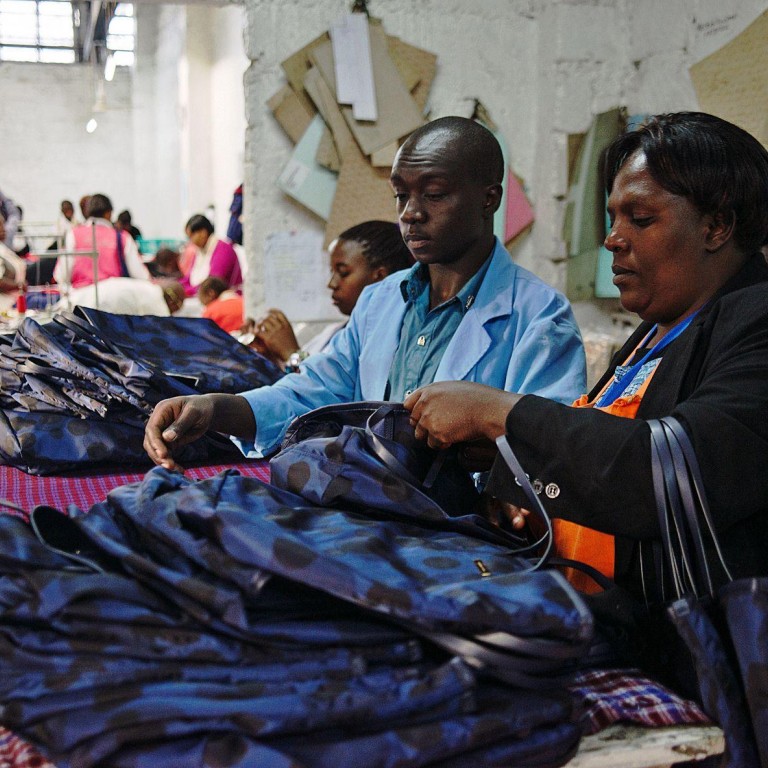
The Nairobi workshops proving ethics is back in fashion
Poor workers linked to top designers in project based on 'mutual benefit'
The muddy streets of Kenya's crowded Korogocho slum are a far cry from the fashion boutiques of Paris, Milan, New York or London.

"Before Ethical Fashion, I couldn't educate my children," said Lucy, sitting in a circle of women, needles in hand as they deftly sewed white seed beads to the surface of smooth, chocolate-coloured leather.
"But now I can educate them, and provide for them anything they need," said the mother of four, in her late 30s.
From Korogocho, accessories like the cuffs the women sew are sold in high-end boutiques, stamped with the labels of international fashion houses such as Vivienne Westwood, Fendi and Stella McCartney.
It is part of the project built on a model of "mutual benefit" that aims to support poor communities by linking them with fashion houses and distributors.
Workers on the scheme - a member of the Fair Labour Association - would take months to earn enough to buy some of these luxury goods, which sell for hundreds of dollars on the high street.
But conditions are very far from the sweatshops that muddy some fashion brands, with the UN-backed scheme providing decent working conditions, training and - perhaps the clearest sign of its success - people queueing up looking for work.
Organisers say some 90 per cent of workers in Kenya have improved their homes, and almost 85 per cent now provide better food for their families.
A joint effort by the United Nations and World Trade Organisation, the initiative has expanded from Kenya to Burkina Faso, Ghana, and Haiti, with plans for future expansion on the continent and in Asia.
The long journey these bags, clothes and accessories will make has reshaped the lives of women like Lucy.
Struggling as a teenager in the tin-shack slum in Kenya's capital Nairobi, by the age of 16 she had turned to prostitution to survive.
With three children of her own, she also cares for her nephew, after her sister died of Aids.
Starting five years ago as a seamstress, Lucy is now a supervisor. Last year she moved her family out of Korogocho to a nearby suburb, with less crime.
Of the more than 5,000 people involved in the initiative in Kenya, 90 per cent are women.
For Arancha Gonzalez, chief of the International Trade Centre that runs the project, it offers a sustainable way to improve lives.
"Trade, economic activities, markets can also be married with human development, with women's economic development, with poverty reduction," Gonzalez said.
The project's slogan is "not charity, just work".
"We call it ethical because we give a decent job, with decent working conditions, to very destitute people," Gonzalez added.
"First and foremost it gives women dignity."
